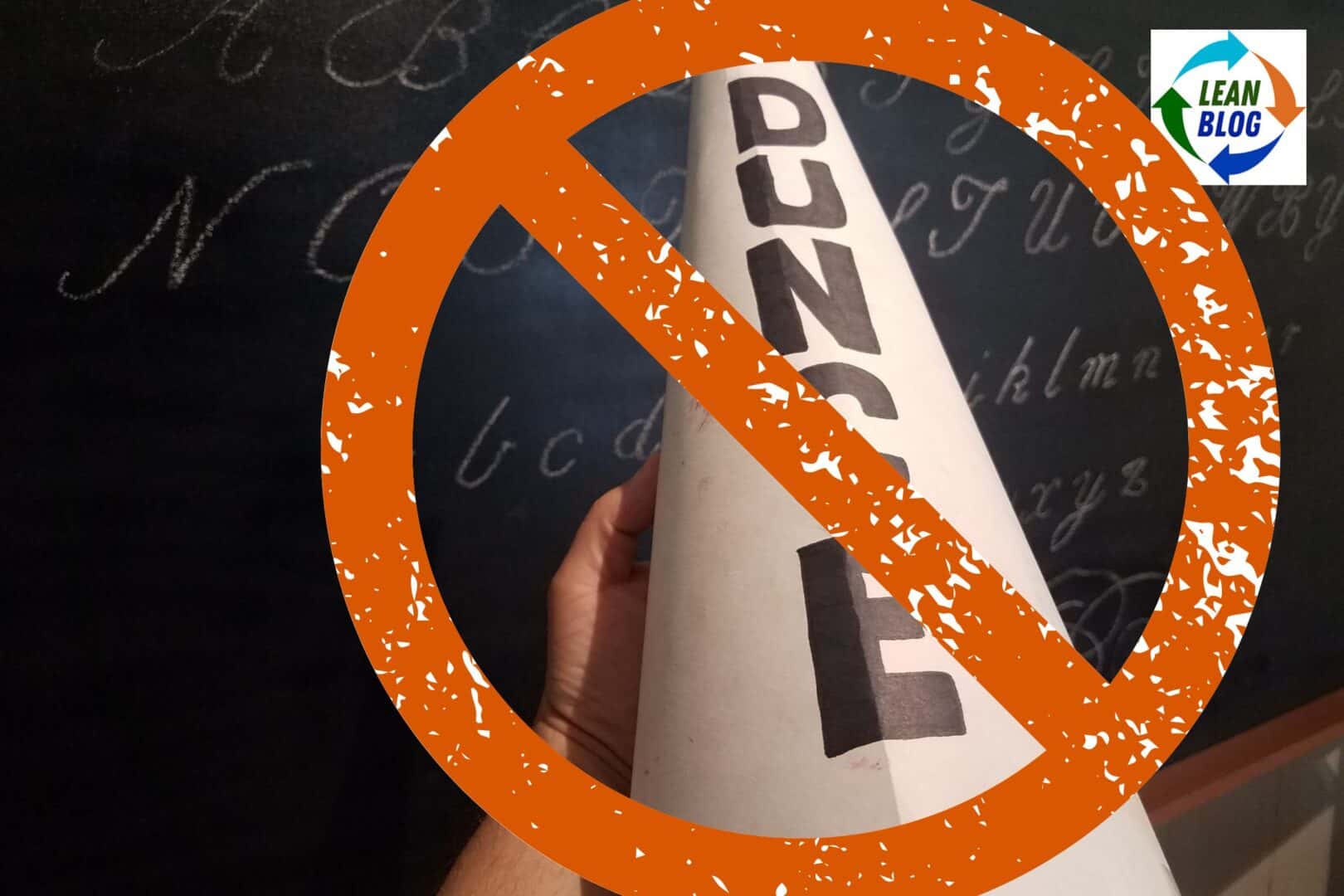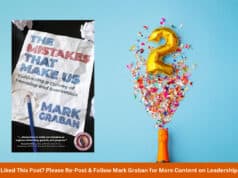When discussing mistakes, it's common to hear terms like “stupid mistake” or “dumb mistake” thrown around, especially when reflecting on our own errors.
However, labeling mistakes in this way is unproductive.
In The Mistakes That Make Us, one of the key ideas is that we shouldn't label mistakes as “stupid” or “dumb.” Mistakes are a natural part of the human experience, and even the smartest, most capable people make them.

What truly matters is not the mistake itself but what we do after it happens–including shifting our mindsets. Calling mistakes “dumb” only serves to add shame and prevent us from reflecting and learning. Instead, we should see mistakes as opportunities for growth, as demonstrated by the stories of Jim McCann and Donnis Todd.
Take Jim McCann, the founder of 1-800-FLOWERS, for example. In 1986, Jim made a decision that he refers to as a “due negligence” mistake. At the time, Jim was eager to expand his small business and took an opportunity to purchase the company that owned the now-iconic 1-800-FLOWERS phone number. But in his eagerness to seize this opportunity, Jim didn't conduct enough due diligence and found himself saddled with $7 million in personal debt after the deal went through. That kind of financial burden could have destroyed his business, and many might have labeled his decision as “stupid.”
Yet, instead of dwelling on the error or letting it define him, Jim used it as a catalyst to work harder and smarter. The debt forced him to operate more strategically and pushed him to grow the business more quickly to recover.
This “mistake” ultimately led Jim to build the first national floral brand in the United States. He learned valuable lessons about risk management and financial decision-making that shaped how he ran his business moving forward. Jim didn't shy away from the fact that his decision was costly, but he saw it as a crucial learning experience rather than a “dumb” error.
Similarly, Donnis Todd, the master distiller at Garrison Brothers Distillery, made a decision that he later described as a “stupid mistake.”
In 2015, Donnis filled 100 barrels with bourbon that he was particularly excited about. The bourbon had matured well, but instead of bottling it, Donnis decided to let it age even longer, hoping it would turn into something truly exceptional.
However, Texas summers are harsh, and the extreme heat in 2017 caused excessive evaporation from the barrels. When it was time to bottle the bourbon, many of the barrels had lost much more liquid than expected–some barrels were nearly empty. The financial loss was significant, estimated to be between $150,000 and $300,000.
Despite the severity of the mistake, Donnis didn't hide from it. He admitted it hurt his pride, and while he might have referred to it as “stupid,” the real strength came in his openness. Rather than trying to cover up the error, he used the experience to learn more about the aging process and the impact of Texas heat on his bourbon. This transparency helped strengthen the culture of learning at Garrison Brothers Distillery.
Instead of blaming himself or others, Donnis focused on improving future processes and ensuring the team wouldn't make the same mistake again.
Both of these stories show that mistakes are inevitable, even for experienced and intelligent individuals. Jim McCann and Donnis Todd could have easily let their mistakes cripple their confidence or their businesses. They could have labeled themselves as “stupid” or let others do it for them. But instead, they used their experiences to learn and improve. By reframing mistakes as learning opportunities, they both became stronger leaders with more resilient organizations.
It's easier to reframe mistakes as learning opportunities when we're the CEO (Jim) or when one works for a supportive CEO (Donnis, who works for Dan). It's not just easier in those conditions… it really requires those conditions for learning to even be possible to begin with.
Again, what's truly harmful is labeling mistakes as “stupid” or “dumb.” This kind of thinking leads to shame and fear, which in turn discourages people from being honest about their errors or reflecting on what went wrong. In organizations, this can be toxic.
If team members fear being judged for making mistakes, they'll hide them instead of speaking up. This not only stifles personal growth but also prevents the organization from addressing systemic issues that could be causing repeated errors.
In Lean thinking and continuous improvement, mistakes are seen as invaluable sources of learning. The Toyota Production System, for example, is built on the idea that errors are opportunities to improve processes. Instead of blaming individuals for mistakes, organizations that embrace Lean principles focus on understanding the root cause of the error and adjusting the system to prevent it from happening again. This approach encourages openness and learning rather than fear and blame.
Check out these stories about mistakes at Toyota from the “My Favorite Mistake” podcast series (and “Lean Blog Interviews“), featuring Isao Yoshino, David Meier, and Mike Hoseus and their stories.
The real failure isn't making a mistake–it's failing to learn from it. When we view mistakes through a lens of improvement, we create an environment where people feel safe to admit errors, reflect on them, and make changes.
Jim McCann's decision to buy the 1-800-FLOWERS company may have come with unexpected debt, but it forced him to develop strategies that led to his company's ultimate success. Donnis Todd's mistake with his bourbon barrels might have cost him hundreds of thousands of dollars, but it helped him refine his approach to distilling in Texas, and it strengthened the culture of transparency at Garrison Brothers Distillery.
In both cases, these leaders didn't let their mistakes define them. Instead, they learned from them and used those lessons to become better at what they do. If they had labeled their mistakes as “dumb” and stopped there, they would have missed out on the valuable insights that those errors provided.
So, the next time you make a mistake–or see someone else make one–resist the urge to call it “stupid” or “dumb.” Instead, ask yourself (or them), “What can I learn from this?”
By shifting your mindset from blame to learning, you'll be able to turn even the most costly mistakes into stepping stones for improvement. After all, what's truly “dumb” isn't the mistake itself–it's refusing to learn from it.
Questions for Reflection and Comments:
Have you ever labeled a mistake as “stupid” or “dumb”? How did that mindset affect your ability to learn from it?
Can you think of a time when you turned a mistake into a valuable learning experience? What did you gain from it?
How does your workplace or organization handle mistakes? Are they seen as opportunities for improvement or sources of blame?
What strategies do you use to shift from self-blame to reflection when things go wrong?
What's a mistake that taught you something you might never have learned otherwise? How did it change your approach?
Do you agree that the real mistake is failing to learn from errors? Why or why not?
What could your team or organization do to create a culture where mistakes are seen as opportunities for growth?
Please scroll down (or click) to post a comment. Connect with me on LinkedIn.
Let’s work together to build a culture of continuous improvement and psychological safety. If you're a leader looking to create lasting change—not just projects—I help organizations:
- Engage people at all levels in sustainable improvement
- Shift from fear of mistakes to learning from them
- Apply Lean thinking in practical, people-centered ways
Interested in coaching or a keynote talk? Let’s start a conversation.









